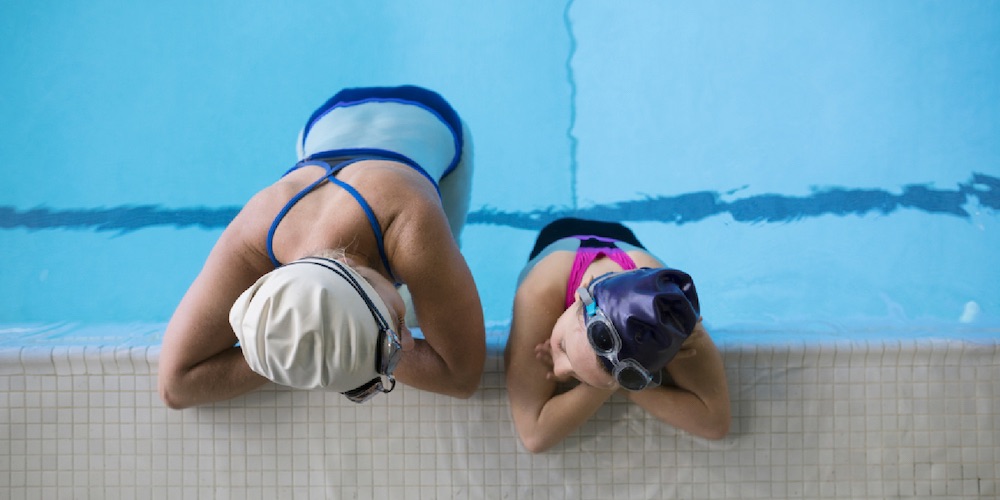Making Waves: Nurturing Mental Resilience in Young Swimmers

The Deep End: When to Seek Professional Help
Sometimes, the mental challenges can feel overwhelming. Consider reaching out to a mental health professional if you observe:
- Persistent mood changes or withdrawal from activities they once enjoyed
- Extreme anxiety about competitions or practice
- Signs of disordered eating or negative body image
- Inability to cope with the rigorous demands of swim training
Remember, seeking help is not sinking, it’s reaching for a life preserver of support.
Riding the Waves: Strategies for High-Pressure Situations
Help your swimmer stay afloat in intense moments:
- Develop a pre-race routine to center their focus
- Practice visualization of successful swims
- Teach deep breathing techniques to use before stepping onto the starting block
The Buddy System: Fostering Open Communication
Create an environment where your swimmer feels safe to share:
- Listen without judgment, especially after challenging meets
- Ask open-ended questions about their experiences in and out of the pool
- Share your own stories of overcoming obstacles
Treading Water: Handling Setbacks and Losses
Teach your swimmer to stay buoyant through difficulties:
- Reframe losses as opportunities for growth
- Analyze performances objectively to identify areas for improvement
- Celebrate personal bests, not just first-place finishes
The Mental Warm-Up: Cultivating Positive Self-Talk
Coach your swimmer to replace negative thoughts with empowering ones:
- “I’m too slow” becomes “I’m constantly improving my technique”
- “I’ll never qualify” shifts to “Each practice brings me closer to my goals”
Encourage pre-race affirmations like “I am strong and streamlined” or “I trust my training.”
Recognizing the Currents: Mental Health Challenges in Swimming
Be alert for these potential undertows:
- Burnout from rigorous training schedules and early morning practices
- Pressure to maintain a certain body type for performance
- Anxiety about personal bests and qualifying times
- Feelings of isolation, especially in an individual sport like swimming
Your Lane: A Parent’s Role in Emotional Support
Be the steady lane line your swimmer needs:
- Offer consistent support, regardless of performance
- Focus on effort and technique improvements rather than just times
- Help maintain perspective – one meet doesn’t define their swimming career
- Model healthy coping strategies and balanced attitudes toward competition
- Having a safety net like sports insurance in place might mean you can handle emergencies like injuries or illnesses with less worry. This way, you can focus on being there for your swimmer when they need you most.
The Relay of Well-being: Building Long-Term Mental Fitness
Help your swimmer develop lasting mental stamina:
- Encourage interests and friendships outside of swimming
- Teach goal-setting for both sprint and marathon life aspirations
- Promote a growth mindset that values effort and learning
- Foster team connections to balance the individual nature of the sport
Your role isn’t just to cheer from the bleachers or time their laps. You can be the anchor in their mental and emotional relay, providing stability and support as they navigate the choppy waters of adolescence and competition.
By fostering open communication, promoting a healthy self-image, and recognizing when additional support is needed, you can help your swimmer develop a toolkit of mental skills that can serve them long after they’ve dried off and left the pool deck.
Dive Into Reassurance
From the starting block to the final lap, help protect your young swimmer with pomi’s youth water sports insurance. Choose the best coverage for your needs, or combine options for enhanced reassurance—letting your athlete focus on making waves, both in and out of the pool.

